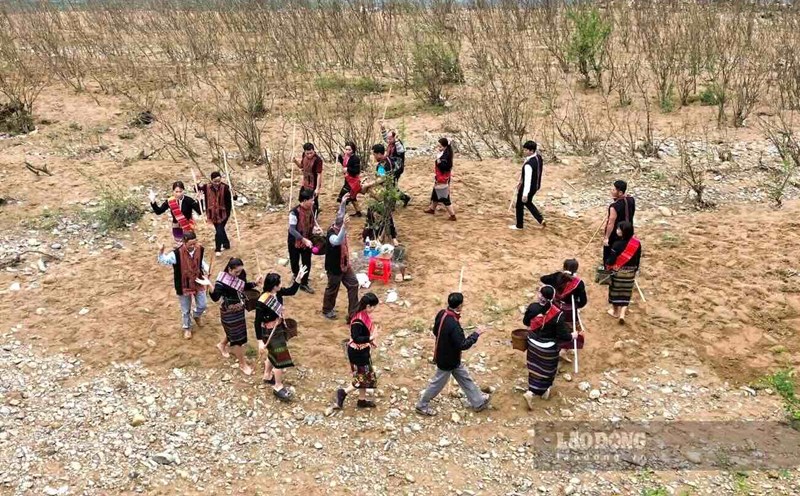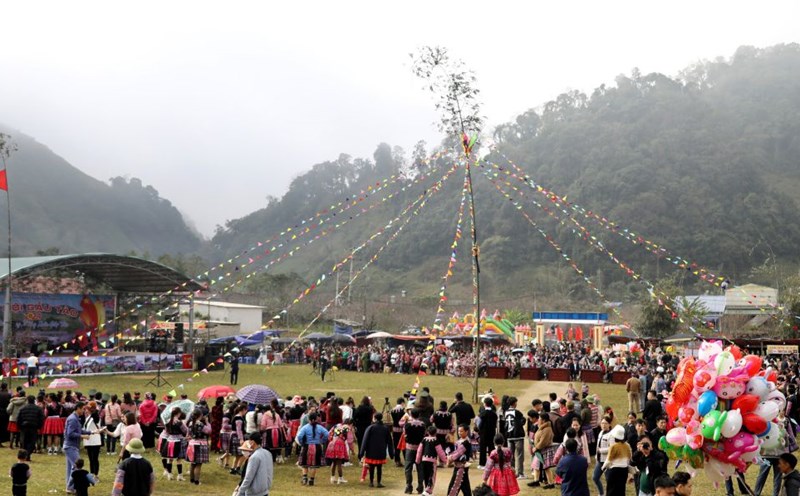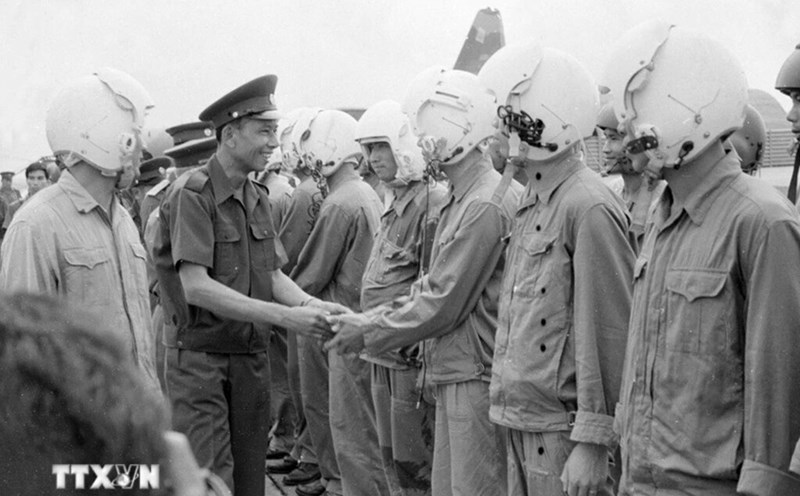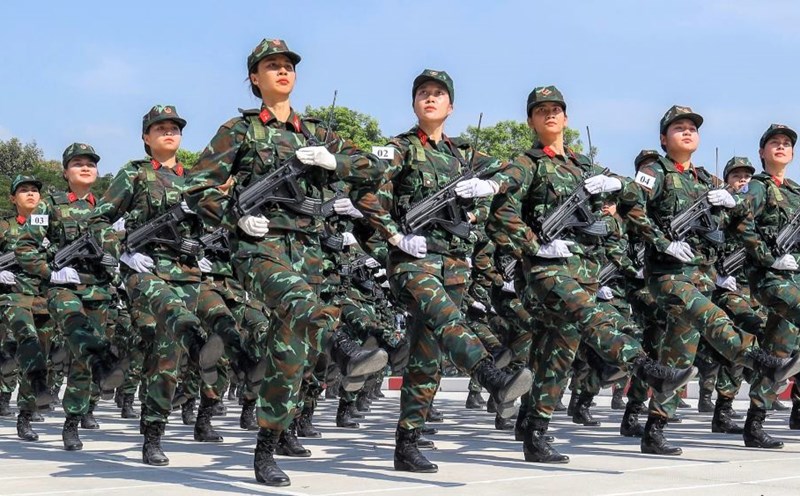Reflecting the cultural life of ethnic communities
Western Nghe An, home to the Thai, Tho, Mong, Kho Mu, O Du, Kinh ethnic groups, is not only famous for its majestic nature but also for its unique traditional festivals held at the beginning of each year.
These festivals not only have spiritual significance but also deeply reflect the cultural life, customs and solidarity of the ethnic communities in the Western Nghe An region.
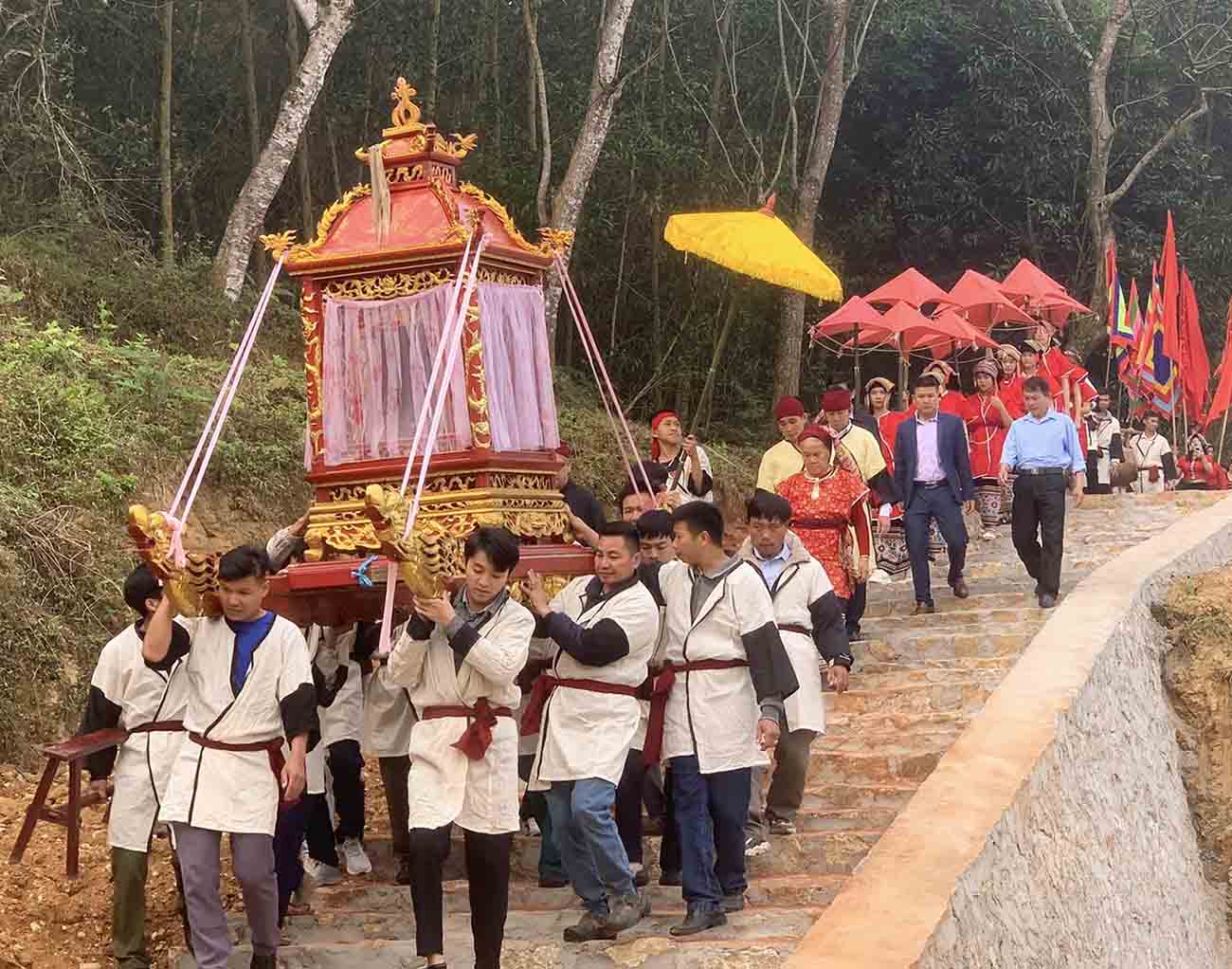
One of the most prominent spring festivals in Western Nghe An is the Hang Bua festival, held in Chau Tien commune, Quy Chau district. Taking place from the 6th to the 8th day of the first lunar month, the festival is an occasion for the Thai ethnic people to remember their ancestors and gods, and pray for favorable weather and bountiful crops.
Hang Bua, with its majestic natural scenery, is a sacred space for worship rituals. People offer offerings such as sticky rice, chicken, pig, and mountain and forest products to express their respect. Along with the solemn ceremony, the festival includes traditional cultural activities such as bamboo dancing, crossbow shooting, con throwing, and ethnic costume performances, creating a bustling atmosphere imbued with Thai cultural identity.
Hang Bua Festival is not only a place to express spiritual beliefs but also an opportunity for the community to unite, together preserve and promote the cultural beauty of the Thai people.
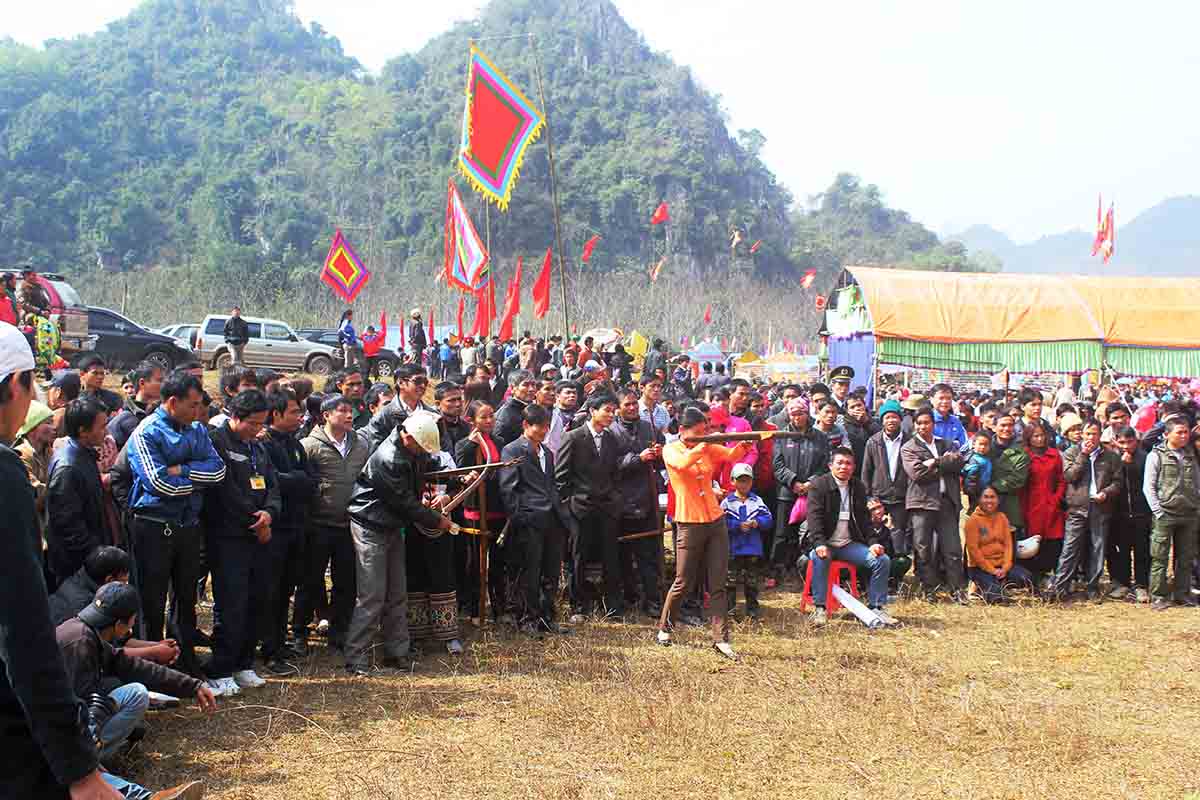
Pu Nha Thau Festival is one of the important and unique traditional festivals of the Mong people in Ky Son district, Nghe An province. The festival is usually held in early spring, from the 3rd to the 6th day of the Lunar New Year, to pray for a new year of peace, luck, bountiful harvests and health for the whole community.
The name "Pu Nha Thau" is understood as a festival dedicated to the "highest god", who is believed to protect the lives, crops and happiness of the villagers. The highlight of the festival is the solemn sacrificial rituals, offering gifts such as chickens, pigs, wine, and mountain products to the gods, along with traditional Mong flute dances.
In addition to the ceremony, the festival is also bustling with folk games such as pao throwing, crossbow shooting, tug of war and singing and dancing. This is an opportunity for people to meet, have fun, strengthen solidarity and preserve traditional cultural identity.
Pu Nha Thau Festival not only has spiritual significance but is also a cultural symbol of the Mong people, contributing to preserving and promoting heritage values and promoting the cultural beauty of Nghe An mountainous region to everyone.
The Nine-Chamber Temple Festival, held on the 13th to 15th of the second lunar month at the Nine-Chamber Temple in Chau Kim Commune, Que Phong District, is a festival of profound spiritual significance for the Thai community. The Nine-Chamber Temple is considered a place where heaven and earth meet, a spiritual support for the Thai people in ancestor worship and praying for peace.
During the festival, solemn rituals are performed to offer to gods and ancestors. Along with that, cultural and artistic activities such as singing and dancing, traditional sports competitions, and bustling fairs contribute to honoring the traditional beauty of the Thai people.
Preserve and promote traditional cultural values
Spring in Western Nghe An is not only beautiful because of its majestic nature but also bustling with traditional festivals imbued with national cultural identity. Festivals such as Hang Bua, Xang Khan, Gau Tao or Chin Gian Temple are not only places to express spiritual beliefs but also bridges connecting the community and preserving precious cultural heritage.
Coming to Western Nghe An during the festival season, everyone not only gets to live in a joyful and vibrant atmosphere but also deeply feels the beauty of culture, solidarity and love of life of the people here.
Festivals are places to recreate customs, practices, beliefs and traditional arts, helping the younger generation understand and be proud of their roots. At the same time, this is also a way to promote the cultural identity of Western Nghe An to friends at home and abroad.
Festivals such as Hang Bua, Xang Khan or Gau Tao not only attract local people but also attract tourists, contributing to sustainable tourism development, bringing economic benefits to the community.
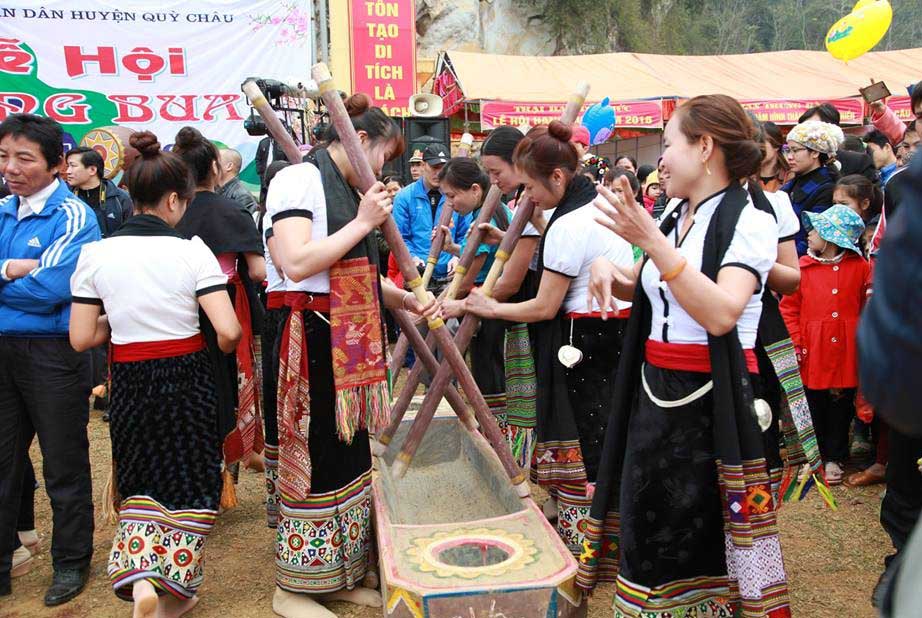
Festivals honor nature, emphasizing the harmonious relationship between humans and the environment, thereby raising awareness of protecting precious natural resources.
Festivals are a space for ethnic communities to meet, exchange, share joy and strengthen solidarity. From dances, songs to folk games, everyone has the opportunity to immerse themselves in the festival atmosphere, sharing pride in national culture.
Director of Nghe An Department of Culture and Sports Tran Thi My Hanh said: “Spring festivals in Western Nghe An are not only an opportunity for the community to express their respect to gods and ancestors, but also have profound significance in preserving and promoting traditional cultural values.
Over the past years, the cultural sector and localities have strengthened the management and organization of festivals, aiming to create conditions for people to create and enjoy cultural values.

